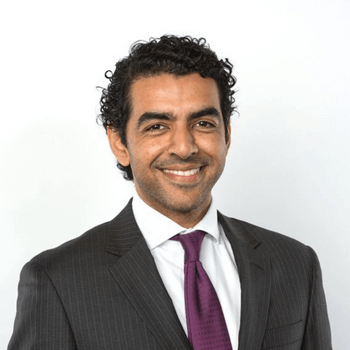Mixing medicine and business
Why healthcare professionals are pursuing MBAs
Across every sector, organisations can gain immense benefits from staff who possess highly developed leadership and management capabilities.
This is especially true for healthcare, an industry made up of businesses structured by people that serve the needs of people. As the healthcare industry advances to overcome new challenges, there’s a growing demand for the innovative business leadership skills taught in top MBA programs.
Medical professionals balance a wide range of responsibilities as clinicians and researchers before they begin considering new ways to add value to their organisation. Typically experts in their field, healthcare workers may start to identify opportunities for innovation and growth but find they don’t have the managerial capacity or strategic thinking skills to lead solutions.
Finding such a gap in your own knowledge or experience is often a formative steppingstone for embarking on an MBA and taking the next step in your career. For many UQ MBA alumni with backgrounds in health, this opened up a realm of possibilities.
 Transitioning from clinical specialist to executive leader
Transitioning from clinical specialist to executive leader
Before starting his UQ MBA, Dr Alex Chaudhuri focused solely on delivering the best bedside care to his patients in the Infectious Diseases Unit. When considering how to strengthen the quality of care across clinics and health services, it became evident to Alex that modern medicine relies on organisational directives being handled with adept management and clear communication.
"The skills required to translate quality from the bedside to the whole organisation required an MBA, and what I got out of the MBA was the leadership and people management aspect -because health is essentially a people business."
Dr Alex Chaudhuri, The Prince Charles Hospital (TPCH)
Tanya Kelly was working as an anaesthetist when she was asked last-minute to attend an executive meeting and negotiate on behalf of a health service for a local private hospital. She felt out of her depth when it came to understanding what was being said from a business perspective.
“I realised I had a choice,” Tanya says. “I could either stay in my clinical domain or I could look at developing new business leadership skills.”
Tanya challenged herself by choosing the UQ MBA, a study field outside her expertise that would diversify her skillset and lead her to executive positions.
“I wanted a degree that was much broader, deeper, more modern and that would push me to think about things in a different way. I wanted to learn new skills so I could put something back into the organisation from the outside.”
 Executing growth opportunities by adapting current skills
Executing growth opportunities by adapting current skills
Amid rapid industry changes thanks to the pandemic and technological advancements, many hospitals and healthcare facilities are evolving as businesses to prepare for uncertainty and reinforce quality patient care. Over the last five years, applicants from the healthcare industry have made up the largest cohorts of the UQ MBA program, equalling around 12% of students.
“Healthcare workers joining the MBA program are wanting to best equip themselves to respond to the changing health landscape, and this is no longer limited to those in healthcare administrator roles. We see healthcare professionals from various clinical backgrounds and vocations seeking higher level management and leadership skills to best respond to both the challenges and immense opportunities our healthcare industry is facing.”
Associate Professor Nicole Hartley, UQ MBA Director
Claire Johnston, former Principal Health Advisor at Mott MacDonald and UQ MBA alum, agrees that these challenges require medical professionals to adapt and advance their abilities.

“A medical degree, nursing degree or physiotherapy degree does not equip people with the skills needed to deal with all the issues you end up having to deal with in this profession,” she notes.
Claire suggests that having an MBA while working in healthcare fosters strategic thinking to engage with key issues, such as patient monitoring solutions, data handling and managing rising costs. More and more, executive and management positions in healthcare require leaders with business
acumen who can identify development potential and implement strategic plans.
“The reality is that you won’t get employed in a senior leadership position in healthcare without a postgraduate qualification,” Claire says.
Having since transitioned into a new role as Director of Operations at Protegas Australia, Claire acknowledges how the MBA prepares students for new challenges by equipping them with a diverse skillset.
“Completing an MBA provides you with a breadth of knowledge and understanding across a number of different areas that allow you to problem solve, enhance capabilities and execute growth opportunities.”
 Expanding career aspirations and networks to change direction
Expanding career aspirations and networks to change direction

Some healthcare professionals want to take their medical background and apply it in a new career. For Suzanne Wood, the UQ MBA gave her an opportunity to develop the business skills she needed to influence change and expand her career prospects.
“I’d reached a point of minimal returns for effort. I needed some way to jump the ladder and have more influence,” Suzanne says.
“There are limited pathways in nursing with how far you can go in terms of progression past the mid-management level and truly becoming an influential decision-maker."

Phil Teuwen worked as a polysomnographer (a health professional who assesses sleep disorders) and clinical educator for 10 years before taking on an MBA. As he began to handle more complex organisational problems, Phil saw the UQ MBA as his opportunity to embrace the transition away from clinical duties.
“I hadn’t thought much past the qualification itself or the few new letters to put after my name, I certainly didn’t foresee all the great experiences and opportunities that became available with such a high calibre network of peers from the program,” he says.
"The MBA taught me to lift my game to a whole new level, because your fellow students at UQ are at the top of theirs. I’ve experienced firsthand that the quality put forward by UQ MBA students is often on a similar level or higher as that from the Ivy league schools overseas.”
“There’s enormous professional and personal value in learning from the people you’re studying with,” Suzanne agrees. “The advanced knowledge and skills learned during the MBA, as well as the variety of new perspectives gained through my MBA networks, has helped me to translate learnings from other industries into innovative health sector solutions.”
By learning alongside high-level professionals in other industries, UQ MBA students with medical backgrounds can expand their skills, capabilities and networks to shape new career pathways and achieve greater success.
Discover your next career challenge
Whether you’d like to pursue leadership positions in healthcare or broaden your medical expertise in a new industry, a UQ MBA can help you develop your adaptability and resilience to lead innovation against uncertainty.

